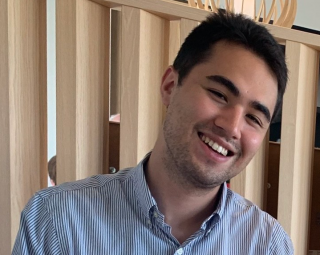“Constant exposure to the use of analysis in uncovering hidden relationships within data provided me with a more holistic understanding of social phenomena.”
Why did you choose the Q-Step programme as part of your degree?
Having originally chosen to study geography in the single honours programme, the prospect of linking a traditionally qualitative subject (at school anyway) with statistics and code really appealed to me. I always enjoyed mathematics at school, and when the opportunity arose it was really a no-brainer for me. Although I initially had a limited understanding of the field, constant exposure to the use of analysis in uncovering hidden relationships within data provided me with a more holistic understanding of social phenomena. To this day, the ideas and methods I learnt at university have profoundly impacted me from an academic, professional and personal lens.
What was the highlight of your programme? What was the biggest challenge?
My highlight was the vast scope of the programme, breaking down the boundaries between each of the social sciences. This allowed me to appreciate the main ideas and challenges in areas such as epidemiology to political science, expanding my horizons on the vast applications of quantitative methods. Through this exposure, I was able to apply data analysis in a variety of different fields; something which greatly helped adapt to my current role. Learning to programme helped consolidate all these varied concepts, all the while developing a proficiency sought by myriads of endless leading firms and organisations.
On a more personal level, the structure of the programme provides an opportunity to meet students outside your primary subject. Besides making new friends on the course, the Q-step society provided a blend of engaging and relevant talks to attend, as well as holding several social events with plenty of wine and good fun – the sort of things you treasure when looking back upon your time at university!
The biggest challenge was perhaps the initial learning curve of the Methods modules’. Some of the statistical techniques are sophisticated and required extensive amounts of reading to become comfortable with the core ideas*. However once this is achieved, in terms of data analysis, you will find yourself at a level more advanced than most other students studying equivalent modules elsewhere!
*(I would recommend that you use your lecturers’ office hours as much as you can!)
How did your Q-Step experience influence your plans following graduation?
Unlike others, I did not have a clear career path in mind upon graduating, except that I knew I wanted to work in an analytical role! After a brief stint studying abroad, I joined a financial institution as a Risk Analyst. Here I put to practice my coding albeit in a different language and context, whilst learning about retail banking and risk management in the process.
Recently, I have joined 4-most Europe as a consultant specialising in credit risk. My day-to-day job utilises the skills and fundamentals taught in the Q-step programme: from the technical aspects of data manipulation and statistical modelling, to report-writing and presenting your findings to an audience.
What's next for you?
With the financial risks of climate change slowly becoming embedded in the risk frameworks of financial institutions, I am eager to employ the spatial analytical tools from Q-step to help clients identify and manage these risks effectively!

 Close
Close

